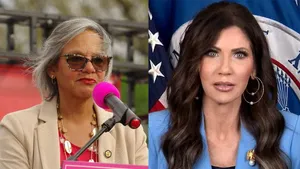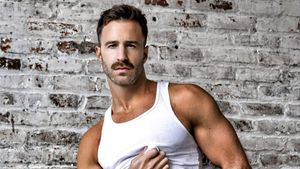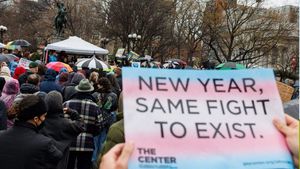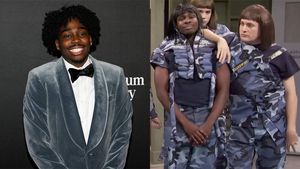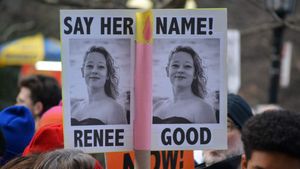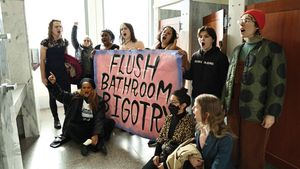Treatment GuideJust DiagnosedSex & DatingAfrican AmericanStigmaAsk the HIV DocPrEP En EspañolNewsVoicesPrint IssueVideoOut 100
CONTACTCAREER OPPORTUNITIESADVERTISE WITH USPRIVACY POLICYPRIVACY PREFERENCESTERMS OF USELEGAL NOTICE
© 2026 Pride Publishing Inc.
All Rights reserved
All Rights reserved
By continuing to use our site, you agree to our Privacy Policy and Terms of Use.
During a speech earlier this year at the White House Conference on LGBT Health in Philadelphia, Secretary of Health and Human Services Kathleen Sebelius addressed what many in an auditorium filled with health care experts knew all too well: The game plan to fight HIV in America, she said, simply isn't working, particularly among populations most at risk for the disease. 'When this administration came into office, our domestic HIV/AIDS strategy was basically to keep doing what we were doing,' Sebelius said. 'We weren't adapting fast enough.' We had lost some of the urgency we had in the '90s. And yet 50,000 Americans continued to become infected with HIV each year'more than half of them were gay men. In some large cities, half of the African-American gay men were HIV-positive.' The infection rate among African-American men who have sex with men, which according to the Centers for Disease Control and Prevention jumped by nearly half between 2006 and 2009, has alarmed many in the movement. This is not only because prevention efforts appear to be stumbling, but also because of enduring stigma surrounding gay and bisexual black men (black women, meanwhile, have also recently shown rates of infection much higher than experts had previously expected). Risky behavior is not the reason for the difference in infection rates between white and black gay and bisexual men. The real answers behind the epidemic among African-Americans are far more complex. Advocates and researchers say that understanding how discrimination, incarceration rates, health care access, and poverty fuel new infections and premature death are far more vital than a narrow focus on individual behaviors. And although they have had an obvious campaign vibe to them, the White House's series of conferences throughout this winter and spring are illuminating both the Obama administration's commitment to a new direction in domestic policy and an appreciation for the nuance that experts have urged in understanding the issue. 'I think that this White House absolutely gets it,' says Aisha C. Moodie-Mills, an adviser for LGBT policy and racial justice at the Center for American Progress. 'When you read through the AIDS strategy, you see they understand the complexities of the issues at hand.' It's not simply a matter of throwing money at the problem, Moodie-Mills explains. From her perspective, the administration is actually working hard to first identify the underlying problems among African-Americans that lead to high rates of HIV/AIDS'then spending federal dollars accordingly. But Moodie-Mills cautions that the White House needs to feel external pressure from gay Americans in order to translate that understanding into further meaningful action. The national LGBT movement's focus on marriage equality over the past few years is well-meaning, though advocates warn of the consequences of leaving behind those who are simply trying to survive. 'In many communities, black gay men are in the same place where white gay men were 25 years ago,' Cornelius Baker, national policy adviser for the National Black Gay Men's Advocacy Coalition, says of the HIV epidemic. 'If they don't believe that the larger gay and lesbian movement is attentive to their lives, why should they invest in it? Why should they participate in it?'
From our Sponsors
Most Popular
“So much life to live”: Eric Nieves on thriving with HIV
September 03 2025 11:37 AM
The Talk: Beyond the exam room
August 13 2025 3:15 PM
Thanks to U=U, HIV-positive people can live long, happy, healthy lives
July 25 2025 2:37 PM
Messenger RNA could be the key to an HIV vaccine — but government cuts pose a threat
August 20 2025 8:02 AM
It’s National PrEP Day! Learn the latest about HIV prevention
October 10 2025 9:00 AM
“I felt like a butterfly”: Niko Flowers on reclaiming life with HIV
July 23 2025 12:22 PM
The Talk: Starting the conversation
July 25 2025 4:47 PM
The lab coat just got queer
August 21 2025 10:00 AM
Amazing People of 2025: Javier Muñoz
October 17 2025 7:35 PM
Plus: Featured Video
Latest Stories
HIV-positive men stage 'Kiss-In' protest at U.S.-Mexico border
December 01 2025 12:56 PM
What the AIDS crisis stole from Black gay men
December 01 2025 6:00 AM
“I am the steward of my ship”: John Gibson rewrites his HIV narrative
September 16 2025 2:56 PM
The Talk: Owning your voice
August 25 2025 8:16 PM
The Talk: Navigating your treatment
August 01 2025 6:02 PM
How the Black AIDS Institute continues to fill in the gaps
July 25 2025 1:06 PM
Dancer. Healer. Survivor. DéShaun Armbrister is all of the above
July 02 2025 8:23 PM
BREAKING: Supreme Court rules to save free access to preventive care, including PrEP
June 27 2025 10:32 AM
1985: the year the AIDS crisis finally broke through the silence
June 26 2025 11:24 AM
VIDEO: A man living with HIV discusses his journey to fatherhood
June 10 2025 4:58 PM
Trump admin guts $258 million in funding for HIV vaccine research
June 03 2025 3:47 PM
Grindr is reminding us why jockstraps are so sexy and iconic
May 02 2025 5:36 PM
HRC holds 'die-in' to protest Trump health care cuts
April 28 2025 2:11 PM
Two right-wing Supreme Court justices signal they may uphold access to PrEP and more
April 21 2025 4:10 PM
500,000 Children at Risk: PEPFAR Funding Crisis
April 08 2025 3:51 PM
Broadway's best raise over $1 million for LGBTQ+ and HIV causes
April 03 2025 7:15 PM
The Talk Season 5 premieres this spring with HIV guidance for the newly diagnosed
March 26 2025 1:00 PM






































